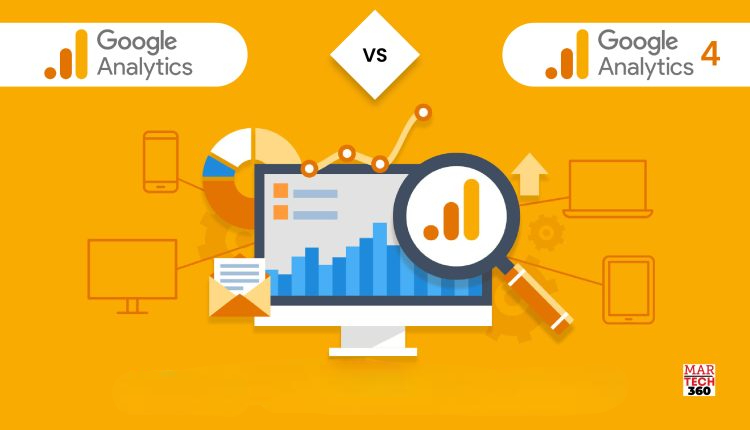The question “GA4 vs. Google Analytics: Which one is better?” has been a hot topic among marketers since the launch of Google Analytics 4 (GA4). Google Analytics (GA), originally known as Universal Analytics (UA) or GA3, debuted in 2005 under the name “Urchin” and evolved into Universal Analytics in 2012. Since then, it has become one of the most widely used web analytics platforms globally. According to BuiltWith, over 28 million websites currently use Google Analytics to track website performance and user behavior.
With the introduction of GA4 in 2020, many business owners are left wondering if they should continue using Google Analytics or transition to the new platform. This guide will explore the differences between Google Analytics and GA4 to help you decide which is best for your business goals.
Google Analytics vs. GA4: A Comprehensive Overview
Google Analytics 4 (GA4), launched on October 14, 2020, represents a major upgrade from its predecessor, Universal Analytics. GA4 introduces a range of new features, including machine learning insights, enhanced tracking across devices and platforms, and more robust event tracking. While both GA and GA4 share the common goal of monitoring and analyzing website traffic and user behavior, there are significant differences in their capabilities.
GA remains the tried-and-tested platform with rich data and robust features, while GA4 introduces cutting-edge functionalities, including advanced privacy features. The decision to transition to GA4 depends on your business needs, goals, and willingness to adopt new technologies.
Key Differences Between GA4 and Google Analytics
1. Event Tracking Flexibility
GA4 offers enhanced flexibility in event tracking. Website owners can create custom events to track specific interactions such as form submissions, button clicks, and video views. This gives businesses deeper insights into user behavior and provides opportunities to optimize user engagement.
2. Machine Learning Insights
GA4 utilizes machine learning to offer more sophisticated insights into user behavior. It can automatically group users based on their interests or actions and provide detailed reports on how different user segments interact with your website. This makes it easier for website owners to optimize their sites for various user groups.
3. Cross-Platform Tracking
One of GA4’s standout features is its cross-platform tracking capabilities. It allows users to track data across multiple platforms, including websites, mobile apps, and even offline data sources. This provides a unified view of user behavior, making it easier to optimize experiences across devices.
4. Data Model: User Events vs. Sessions
In GA4, the data model is built around user events rather than sessions. This means that GA4 tracks interactions as events, such as page views, clicks, or purchases, giving website owners more granular insights into user activity. The event-based model also facilitates better cross-device tracking.
5. User Interface and Customization
GA4 introduces a more intuitive and customizable user interface compared to Google Analytics. It includes features like customizable dashboards, improved reporting options, and advanced data visualization tools, making it easier to interpret complex data.
GA4 vs. Google Analytics: Data Collection and Privacy
One of the most notable differences between GA4 and Google Analytics is their approach to data collection. GA4 focuses on privacy and offers more control over user data. The new event-based data model allows businesses to collect user interactions without relying on cookies, which is becoming increasingly important due to stricter privacy regulations like GDPR and CCPA.
GA, on the other hand, relies heavily on cookies for tracking user behavior. Although Google has made efforts to improve privacy options in GA, including the ability for users to opt out of tracking, GA4’s more privacy-focused features make it the more future-proof option in a world of increasing data privacy concerns.
Choosing Between GA4 and Google Analytics
The decision of whether to use GA or GA4 largely depends on your business needs and goals. GA remains a powerful tool for businesses that require robust, reliable analytics and are already familiar with its interface. However, GA4’s advanced features, such as customizable event tracking, machine learning insights, and enhanced cross-platform tracking, make it an attractive option for businesses looking to stay ahead of the curve.
Additionally, GA4’s event-based data model offers more flexibility and customization, allowing businesses to track user interactions in more detail. As Google continues to update and support GA, it encourages users to transition to GA4 to take advantage of its new capabilities and better prepare for the future.
Why Switch to GA4?
While GA is still widely used and supported, GA4 represents the future of web analytics. With its focus on privacy, advanced insights, and better cross-platform tracking, GA4 offers a more comprehensive solution for businesses looking to optimize their websites and marketing efforts. Although there may be a learning curve for those transitioning from GA to GA4, the benefits of using the new platform far outweigh the costs.
Conclusion
In summary, GA4’s event-based data model and machine learning capabilities offer significant advantages over Google Analytics. Its user-friendly interface and enhanced tracking across devices and platforms make it the better option for businesses looking to gain deeper insights and optimize their digital experiences. As GA continues to be supported for now, businesses should consider transitioning to GA4 to unlock its full potential and future-proof their analytics strategy.
